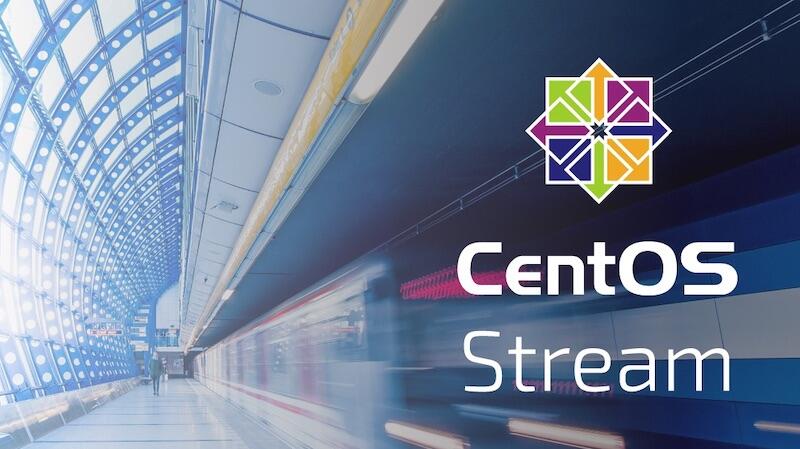Commentary: Many developers criticized Red Hat's shift to a rolling release for CentOS in December 2020. Find out why one big detractor—the co-founder of CentOS—is changing his tune.

Image: Red Hat
As if a COVID winter wasn't bad enough, in December 2020 Red Hat announced that it was shifting away from stable builds of CentOS in favor of the rolling-release development of CentOS Stream. For some, this was tantamount to canceling Christmas. After all, many developers, like this one, used CentOS as a drop-in replacement for Red Hat Enterprise Linux (RHEL), and wrote that it was "a way to get the benefits of Red Hat without paying for it." Some developers, in short, wanted the benefit of RHEL but not the price tag. They weren't happy about the change, as Steven J. Vaughan-Nichols detailed in his ZDNet article Red Hat resets CentOS Linux and users are angry.
Half a year later, some people seem to be coming around to the benefits of Red Hat's approach with CentOS Stream. This includes, perhaps ironically, Greg Kurtzer, co-founder of CentOS. In an interview with The Register, Kurtzer said that, despite initially fighting CentOS Stream, he now sees it as a superior way to collaboratively build software that fits enterprise needs: "I was slow [to appreciate this] but I get what they're doing now."
SEE: From start to finish: How to deploy an LDAP server (TechRepublic Premium)
They who shout loudest…
A tough decision like Red Hat's move to CentOS Stream is always going to require backbone. I imagine that many Red Hatters wanted to avoid Twitter for days (months?) after the change. But if you do something that you feel certain is best for customers, it's worth short-term criticism in favor of long-term customer value.
I say "customer value," but of course you can be as cynical as you'd like about Red Hat's reasoning behind the shift. For example, when Red Hat CTO Chris Wright wrote about the move to CentOS Stream, he painted it in the warm hues of innovation: "Red Hat believes that shifting our full investment to CentOS Stream is the best way to further drive Linux innovation by giving the broader ecosystem community a closer connection to the development of RHEL." OK, sure. But it can also be read as a way to get CentOS free riders to pay up for RHEL.
This makes a lot of financial sense, even if it's unpopular to take away the "free-as-in-beer" RHEL that CentOS used to provide. Yet even those with the most to gain from the old CentOS model now see the virtues of CentOS Stream.
Real community, real talk
Kurtzer admitted that "The end of life of CentOS as we know it had a negative effect on my company and my company's customers as well as pretty much everybody in the industry." He was, to put it mildly, not a fan.
But that was then. This is now.
Now Kurtzer sees CentOS Stream differently. For example, as the founder of Rocky Linux, which forked CentOS, "We can interface with CentOS Stream. [RHEL] is pulling from the CentOS Git repository as we pull from the CentOS Git repository. We're more of a peer to it." And because he's a peer not a serf, "Now we can actually push bug fixes directly into that same git repository that Red Hat's pulling from."
SEE: Analytics: Turning big data science into business strategy (ZDNet/TechRepublic special feature) | Download the free PDF version (TechRepublic)
In other words, Rocky Linux (and AlmaLinux and other distributions based on CentOS) is now a contributor to the CentOS community, not merely a beneficiary. Will Red Hat, as the largest company in that constellation, benefit most? Sure. But CentOS has become a real open source community again, not merely where users line up to get free RHEL. It has made a fan of Kurtzer: "I think Red Hat has done a tremendous job in terms of how they orchestrated this. I was slow on the uptake but I get what they're doing now."
Disclosure: I work for AWS, but the views expressed herein are mine.

Open Source Weekly Newsletter
You don't want to miss our tips, tutorials, and commentary on the Linux OS and open source applications. Delivered Tuesdays
Sign up todayAlso see
- Why you should wade into the CentOS Stream before selling it short (TechRepublic)
- How to convert CentOS 8 to CentOS 8 Stream (TechRepublic)
How to become a developer: A cheat sheet (TechRepublic)
Kubernetes: A cheat sheet (free PDF) (TechRepublic)
A guide to The Open Source Index and GitHub projects checklist (TechRepublic Premium)
How open source-software transformed the business world (ZDNet)
Linux, Android, and more open source tech coverage (TechRepublic on Flipboard)







 English (US) ·
English (US) ·